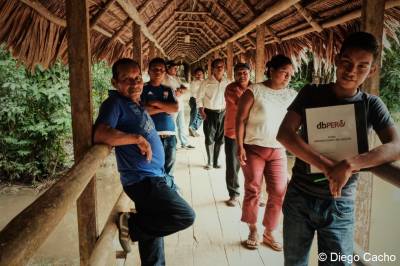
Project Summary
In the Amazon basin of Peru, recent figures show that 79% of women between the ages of 18 and 29 report experiencing sexual violence at some point in their life.
The GAP Project is a community-instigated participatory action research project conducted in partnership with communities living in the Amazon basin to address these high rates of gender based violence (GBV). It is the first primary preventative strategy for GBV in the region of the Lower Napo River, and the first community mobilization project of its type in Peru. To our knowledge, it is also the first project to foster a participatory action research approach to GBV prevention in a low-resource, isolated rural setting.
DB Peru and UCL are currently working a group of self-selected community health workers (Promotors) to lead the local communities through a series of participatory research activities over a 12 month period, following the five stages of participatory action research: reflecting, engaging, planning, acting, and observing/ evaluating. Through this process, the Promotors will develop a GBV prevention intervention in collaborative with the communities, implement the intervention, and collect extensive case study data for its evaluation.
Although the GAP project will be situated in a prescribed area of 25 communities in the Amazon basin of Peru, the project has implications for other remote communities both regionally and internationally. The project will help develop new understandings of the process of community participation as a primary prevention strategy for GBV in these settings.
The lessons learned can then be used to inform appropriate programming for resource-poor communities, which involve communities directly in the development of primary prevention activities and that rely only minimally on financing, technology and external expertise.
 Close
Close

